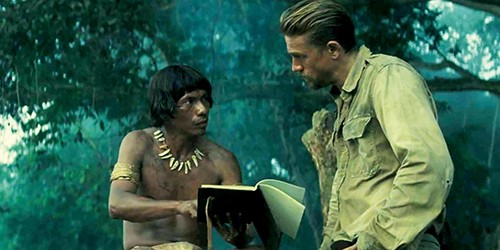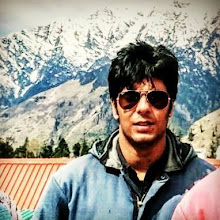The subject of historical geographical exploration is one that has
been depicted in cinema usually as a taste of exaggerated fanciful adventure
(cue: Indiana Jones), animation (cue: Tarzan), or comedy cue: the
upcoming Jumanji 2). As a medium of information apart from plain entertainment,
there was a dearth of cinema that could showcase a detailed picture of the
physical and emotional journey of an explorer, wandering in uncharted,
potentially dangerous regions, invested into the fact that this journey could
well cost them their lives.
Then you come across this absolutely beautiful piece of cinema – a
beautiful account of a British explorer and soldier, Major Percy Fawcett, a
name forgotten over time, and one of the most influential figures linked to the
mythical land of El Dorado believed to be harbouring a secret civilisation much
ancient and more advanced than any other known the world over. The film covers
Fawcett’s journey, from his admittance into the Royal Geographical Society of
England, upto his eventual disappearance in the dense jungles of the Amazon. Major Percival ‘Percy’ Fawcett is
assigned to an expedition near the Brazil-Bolivian territory for mapping
uncharted territory along with Corporals Henry Costin and Arthur Manley. On his
first trip down, he faces threats such as extreme climatic conditions, rampant
disease, invisible bloodthirsty tribesmen, and in the least, a piranha-laden
Amazon River, surrounded by an unfriendly forest that cannot be relied upon for
subsistence.
An unblemished vision and its raw
portrayal, and an extremely well-picked ensemble come together to make this
film a lush, intricate account into the darkness faced by explorers working to
discover new lands to the point of obsession, and continuing on despite continuous
challenges to their reputation, health, lives and sanity.
| Robert Pattinson as Corporal Henry Costin, Fawcett's aide-de-camp |
Fawcett is played by Charlie Hunnam,
most well known as Jax Teller in the long running Sons of Anarchy, Raleigh
Becket in Guillermo del Toro’s Pacific Rim, and the title lead in Guy Ritchie’s
crime-comedy-fantasy film King Arthur: Legend of The Sword. One could say Charlie
Hunnam’s naturally brooding look and demeanour helps him fill Fawcett’s shoes
quite well, as he captures the turbulences faced by the explorer and his aide-de-camp
Costin, played by Robert Pattinson, another gem of an actor (discount the
Twilight saga, and you’ll know what I mean), and how the obsession over the possibility
of finding a hidden civilisation came to become the defining account of his
life as the world knows it. Sienna Miller delivers a splendid heartfelt performance
as Nina Fawcett, the major’s devoted wife who is nearly equally dedicated to
him accomplishing his objective.
Though for a short amount of
time, Tom Holland appears as Jack Fawcett, Percy’s son who accompanies him on
his final journey to the Amazon before their disappearance, and gives a
more-than-decent performance, showcasing his serious chops, a grade above what we see in his latest Spiderman: Homecoming.
 |
| Hunnam and Holland caught between two tribal groups |
In the age of larger-than-life
commercial cinema, which hinges on extreme camera work, high profile names and
style above substance, I feel glad that sometimes filmmakers like James Grey
move out of the track to make cinema such as this – cinema that manages to
evoke a hundred emotions other than plain exhilaration from intermittent one-liners, something we’ve become way
too used to owing to commercial cinema. Where most films manage to establish a
scenario where we view events through a window and feel a fraction of the
thrills, the few like The Lost City of Z gets you holistically and deeply
invested into the journey of their characters, where after a point you build an
almost personal emotional connection with them.




0 comments:
Post a Comment